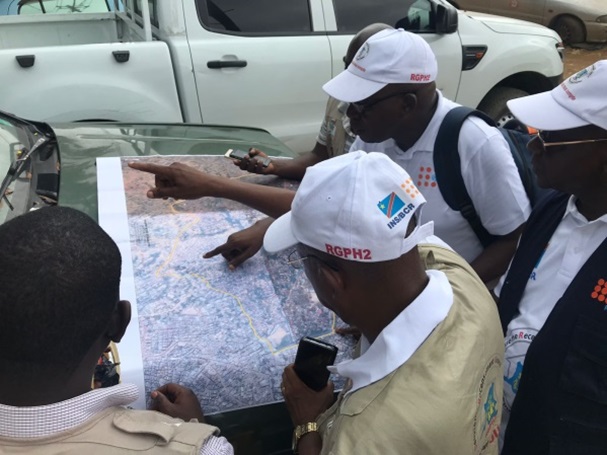Under the leadership of HE Mr BAHATI LUKWEBO Modeste, Minister of State, Minister of Planning, several stages of this important process have already been carried out namely the development of documents and technical tools, the acquisition of materials and equipment to achieve the 2nd census, the realization of the first part of the pilot mapping, and the launch of the communication strategy. Several technical and financial partners support the Government in this major operation: the World Bank, the African Development Bank, the Japanese Cooperation and the United Nations Population Fund (UNFPA).
With the support of the United Nations Population Fund and other technical and financial partners (Flowminder, Columbia University, the Bill and Melinda Gates Foundation and the Department for International Development in the United Kingdom), the Central Bureau of Census (BCR) organized a review of pilot cartography from 30 April to 09 May 2018, one of the technical steps for preparing the 2nd census.
Working sessions were held during the technical review with the UNFPA Resident Representative, the General Director of the National Statistical Institute and the Coordinator of the Central Bureau of Census and the staff of the BCR, the Department of Demography, the Department of Environment and the Faculty of Agricultural Sciences of the University of Kinshasa.
Technical cartographic work was carried out with the team of cartographers of the BCR and a field visit was organized in Matadi from 6 to 8 May 2018, in the district of Dibua-Nsakala, where Enumeration Areas had been obtained in 2017. This fieldwork allowed the delegation to carry out geographic coordinates of structures as well as the boundaries of enumeration areas. Several strategies have been identified in the context of the improvement of future cartographic work, including: (i) the pursuit of outreach and proximity communication on the population census, (ii) the integration of benchmarks physical data on enumeration area maps, especially in densely populated areas, (iii) good distribution of work in field teams and (iv) tablet and computer security in sensitive areas.
"The total adherence of the population of Dibua-Nsakala and the local authorities is the result of the sensitization conducted by the communication team of the Central Bureau of Census upstream to the mission", Ms Agnès MBANUNU, Social Mobilization Officer, BCR
"This mapping assessment is an excellent opportunity offered by GRID initiative to BCR to review the technical tools for collecting and geo-referencing data in the field," Mr Homère NGOMA NGOMA, BCR Coordinator.

This assessment mission of the pilot cartography provides clear guidelines for the effective success of the census cartography, crucial step for the preparation of the second General Census of Population and Housing in DRC.
NB: The field mission team was led by Mr. Homère NGOMA NGOMA, BCR Coordinator in person. The strong delegation was composed by cartographers, demographers, GIS experts and communicators from the BCR's social mobilization cell, the Census Technical Advisor and UNFPA experts. The delegation was very well received by the local authorities of the city of Matadi and particularly the Dibua-Nsakala district. Local guides appointed by the local authorities supported the delegation to access the site and the people who enthusiastically joined the operation.


